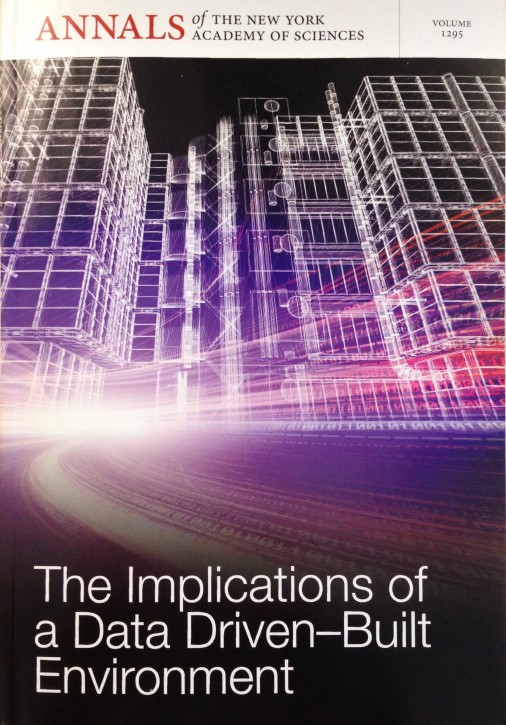Contribution
Knowledge from Data in the Built Environment
Implications for sustainable design
Abstract
This peer-reviewed paper in the New York Academy of Sciences 2013 Annals describes how contemporary digital data feedbacks are changing our relationship to the built environment. It references, the analytic methods, historic and emerging datasets being used to optimize building performance, while recognizing the many obstacles to the successful implementation of data analytics. Beyond contemporary trends, Terrapin’s paper speculates on the implications of this paradigm shift and describes how data is relevant to the broader aspirations of sustainability and resiliency. The paper was authored by Chris Starkey and Chris Garvin and built on the work the Terrapin team who helped organize the NYAS conference “The Implications of a Data Driven Built Environment.”
Data feedback is changing our relationship to the built environment. Both traditional and new sources of data are developing rapidly, compelled by efforts to optimize the performance of human habitats. However, there are many obstacles to the successful implementation of information-centered environments that continue to hinder widespread adoption. This paper identifies these obstacles and challenges and describes emerging data-rich analytic techniques in infrastructure, buildings, and building portfolios. Further, it speculates on the impact that a robust data sphere may have on the built environment and posits that linkages to other data sets may enable paradigm shifts in sustainability and resiliency.
Issue Details
New York Academy of Sciences 2013 Annals, Volume 1295
Issue Contents
- Knowledge from data in the built environment
Christopher Starkey and Chris Garvin - Breaking Barriers into interoperability: assigning spatially and temporally unique identifiers to spaces and buildings
Christopher R. Pyke and Isaac Madan - Applying science and mathematics to big data for smarter buildings
Young M. Lee, Lianjun An, Fei Liu, Raya Horesh, Young Tae Chae, and Rui Zhang - Agent-based simulation as a tool for the built environment
Paolo Gaudiano - Energy disclosure, market behavior, and the building data ecosystem
Constantine E. Kontokosta - Advanced building energy management system demonstration for Department of Defense buildings
Zheng O’Neill, Trevor Bailey, Bing Dong, Madhusudana Shashanka, and Dong Luo

